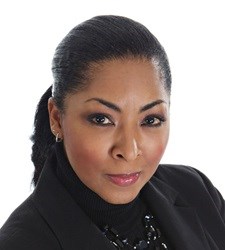The world as we know it is changing faster than most of us can comprehend. Computer power doubles every 18 months and, thanks to medical science and technology, the world's population is becoming wealthier, healthier, and living longer than ever before.

Joyce Lebelo
Africa too is seeing a meteoric rise of the emerging middle class as well as an unequalled growth in youth numbers. This means that while most of the world's average population is getting older and older, Africa, by the year 2030, will have the youngest population on earth.
"Companies, businesses and leaders will need to start looking at how to harness this young dynamic workforce of the future," says Joyce Lebelo, Partner and Managing Executive: eLearning at LRMG Performance Agency
It is clear that the old pattern of business leaders taming and moulding their workforce to fit in with companies' needs will no longer work. The new trend for companies is to find innovative and inclusive ways of transforming their technology, and customising the workplace to accommodate the value systems, talents and lifestyle needs of the young individuals who will make up the new workforce.
Generation X
"Over the next 15 years or so, the current Generation X workforce will be retiring and the upcoming Generation Y, also called the Millennials, will be entering the workplace and gaining consumer power. This new generation, with their new and different techno-social skills needs to be approached differently. They will also redefine leadership as we see it today," says Lebelo.
"We need to ask ourselves how future leaders' responsibility, conscientiousness and vision need to change to cater for and retain the changing workforce, talent landscape and consumers." Lynette Ntuli, Founding Director and Chief Executive of Innate Investment Solutions, and one of the speakers at LRMG's recent Café Africa Futureship conference, says this new generation is going to force leaders to shift.
"At the risk of stereotyping, Millennials typically want to improve their world, lifestyle, level of education and desire extraordinary services in every aspect of life. The new consumers and workforce of Africa look like me. They are young, black, smart and female," she says.
The rise of women
Trend analyst, Dion Chang, another speaker at LRMG's 2014 Café Africa conference, agrees with Ntuli about the rise of women both as consumers and in business.
"Since 2010 there are more women in business than men," he points out. Chang also highlighted the megatrend of Individualisation, yet another shift the Millennials are orchestrating in the business world.
We have already seen that the global village has given rise to a cultural globalisation. In Africa, we are exposed to influences by both Western and Eastern cultures. Thanks to the digital era, their increased access to knowledge, their socio-economic needs and value systems, and their perceptions of, and expectations from, business, it therefore stands to reason that the Millennials have gone global.
Cultural globalisation
In other words, the more we know about the world, the more we want business to adapt to our changing demands and, as previously pointed out, this new generation has a different focus of what drives, motivates and what is important to them. "Individualisation is about the rise of customised solutions in our professional, personal and private lives. And once again, leaders will need to be flexible and learn how to adapt or transform the business landscape in order to factor in this trend," says Chang.
Chang highlights a few key attributes of this individualised individual. "Money is not the motivator, neither is climbing the corporate ladder. It's about finding meaning in work, and trying everything rather than buying everything." Millennials are also looking at the "wellness" of companies they work for. How does the company look after its staff, does it get involved in corporate responsibility projects, does the company do "good"?
"We need to bear in mind that this generation has, environmentally-speaking, inherited a damaged world," Chang points out. "It therefore stands to reason that their focus will be on finding ways to redress, rather than further damage their heritage."
"Companies who can transform their workplace landscape, appreciate the importance of listening and become more socially and environmentally conscious will not only adapt better to the changing corporate landscape but will flourish and dominate in this new world," concludes Lebelo.





























